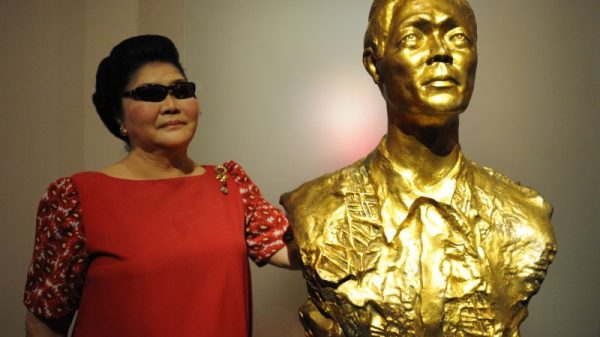Collectivism has had great intellectual reach since the Russian revolution in 1917. Marx’s ideas continue to remain popular, with many seeing the world Marx envisioned as a land of plenty. Ideally individuals sacrifice themselves to the collective in order to reach the next evolutionary stage of society. Yet, collectivism has proved to be nothing but a wolf in sheep’s clothing, glittery promises shifting into grim realities. The anime, Neon Genesis Evangelion (NGE), is not an inherent attack on the philosophy of Marx, but beautifully illustrates the theme that though coping with the world as an individual is difficult, the struggle is what enriches and gives life meaning. The protagonist, Shinji Ikari, is a dejected teenage boy thrust into a post-apocalyptic world where he must struggle to survive and find a path to love himself. The antagonist, SEELE, is a secret cabal working towards “The Human Instrumentality Project.” The goal of this project is to reach the next evolutionary stage of humanity, from existence as individuals to existence as one collective. It’s in this world of NGE that we see this battle between individualism and collectivism take place.
This idea of uniting humanity into a singular being, or humanity’s escaping the problem of scarcity was detailed by Murray Rothbard in his two-volume work An Austrian Perspective on the History of Economic Thought. He portrayed “messianic communists” as having grandiose, apocalyptic ideas, eschatological beliefs that everyone would be homogenized into a singular communal entity. Religious figures such as Joachim of Fiore believed that humanity would be free from their earthly bodies. Rothbard explained the ideas of Karl Marx were not far removed from his messianic communist predecessors. Marx saw communism as an end to human history, whereby mankind would achieve its apotheosis as a collective species.To him, the enemy was the individual, the middle class citizen, who had wrought upon humanity the evils of alienation, exploitation, and private property.
Paralleling Marx, SEELE believes they are fighting the evils of individual existence, namely pain, suffering, and isolation. In opposition to SEELE, Shinji is not, however, some representation of individualism. For much of the series, Shinji is seen as weak and timid as he does as he’s told to be accepted by those around him. When Shinji receives negative feedback for being so weak-willed, those around him tell him he needs to start acting for his own sake. Shinji, like many modern teens, struggles with sadness and loneliness, longing to find his place in the world. The isolation he feels stems from how he struggles to connect with others. Shinji is a deeply hurt character, fearing leaving himself vulnerable, but deeply wanting closer connections in his relationships. These feelings are precisely what SEELE, through Instrumentality, seeks to remedy, in much the same vein of Marx, who, through communism, sought to remedy mankind’s history of class struggle.
As enactors of Marx’s ideas have learned throughout history, though, Shinji also learns that all that glitters is not gold. Shinji becomes wrapped up in the SEELE’s plans and it works out such that he gains the power to decide whether Instrumentality is carried out. At this point, Shinji is in an incredibly vulnerable mental state, and he succumbs to his desire to wipe away not only his individuality, but all of humanity’s. What he experiences, though, is not the escape from pain and sadness that was promised. The void remains unfulfilled, and he reflects on the times he had on Earth as himself. While his life has been tough and wrought with pain in various forms, running away was not going to provide the comfort he sought. He rejects the choice of collective “harmonious” existence, accepting and welcoming imperfect individuality with all its adversities.
Collectivist ideologies are ultimately nothing but fantastical escapes from reality, filled with promises of freedom from scarcity and alienation in one’s work. Marx goes so far as to write that under communism someone can “…hunt in the morning, fish in the afternoon, rear cattle in the evening, criticize after dinner…” Unfortunately, for the victims of collectivism this was never to be the case. These ideas have wrought serious consequences and harm throughout the 20th century, yet they remain popular. Marx believed reality to be one of human, namely proletariat, suffering, but failed to see the flourishing around him, a mistake many continue to make. Shinji makes the same mistake, failing to embrace the meaningful moments he experiences, only to realize so after sacrificing his and all of humanity’s individuality to the collective. Individualism offers no shiny promises to escape the vicissitudes of life, but allows individuals to express the beauty within themselves and voluntarily share it with others. Neon Genesis Evangelion is a fantastic representation of how a unique, creative vision can crystalize these ideas into a thought provoking work of art.





































